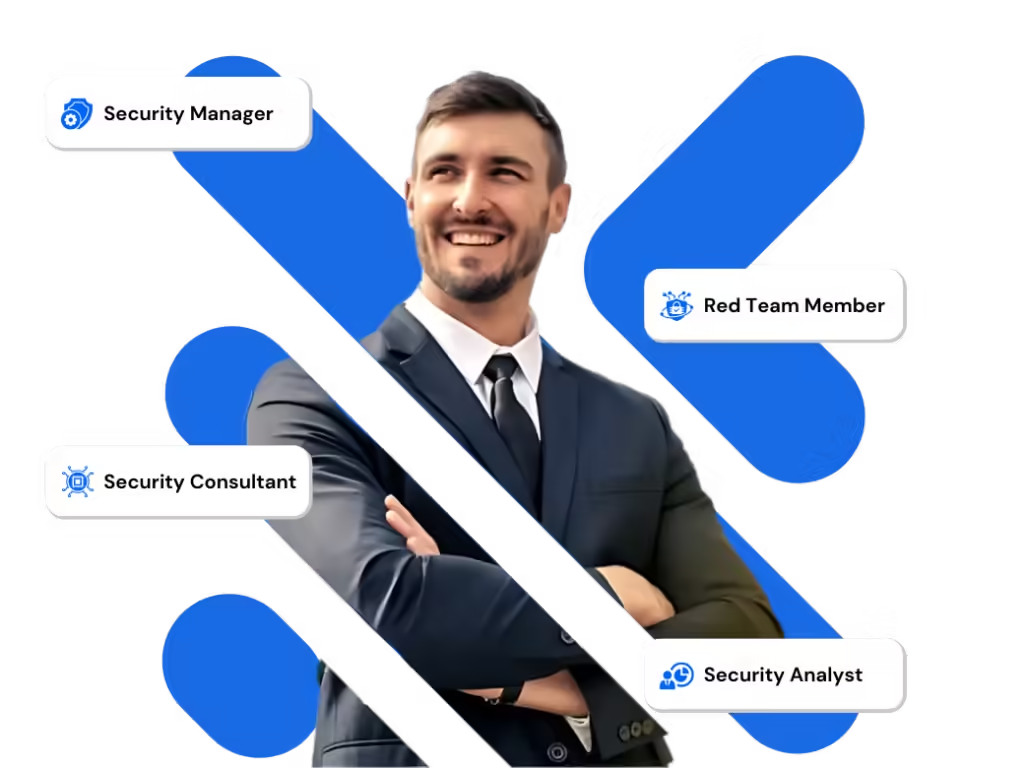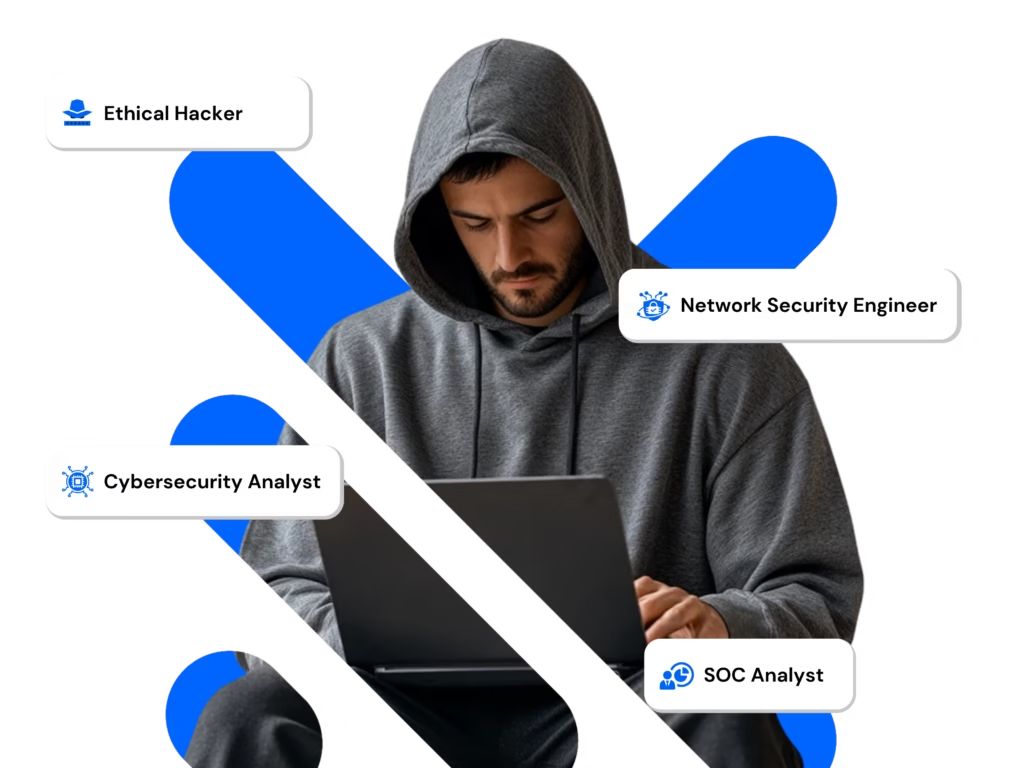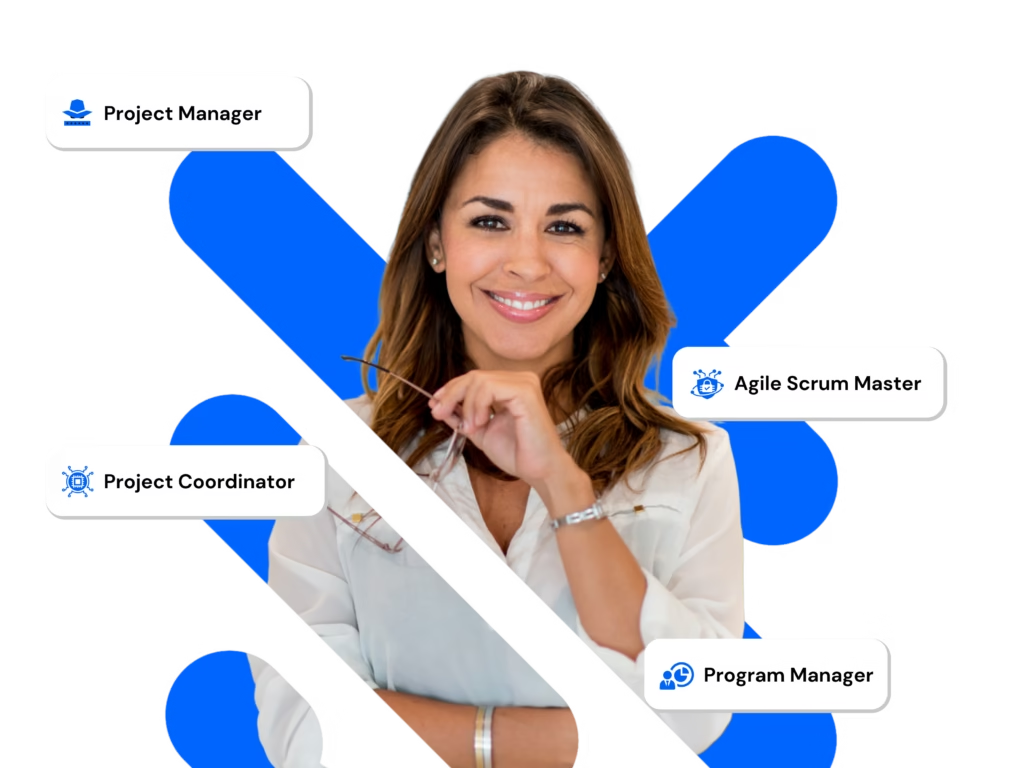- DevOps
- Certified Kubernetes Administrator (CKA)
- Linux Foundation
Certified Kubernetes Administrator (CKA)
Mastering Kubernetes with CKA Certification
Navigating Container Orchestration and Management





Trusted by over 30K students
- Aligned with the Latest Certified Kubernetes Administrator (CKA) Expert Content Outline
- Proven Step-by-Step Blueprint for Certified Kubernetes Administrator (CKA) Success
- World's #1 Certified Kubernetes Administrator (CKA) Prep to Pass in Your First Attempt


Ready for Rapid Career Growth? Our Learning Advisors Are Here to Help!
Enhance Team Skills with Our Corporate and In-House Training Programs
Overview
Certified Kubernetes Administrator (CKA) Certification training
The Certified Kubernetes Administrator (CKA) certification in Dehradun is recognized as a standard for Kubernetes expertise, validating professionals’ ability to design, deploy, and manage Kubernetes clusters. It assesses proficiency in various aspects of Kubernetes, including container orchestration, troubleshooting, and automation. CKA certification holders are skilled in configuring networking, storage, and security for Kubernetes clusters, ensuring optimal performance and reliability. This certification is ideal for DevOps engineers, system administrators, and cloud architects looking to demonstrate their competence in deploying and maintaining Kubernetes environments efficiently, supporting modern application deployment practices.
Industry Demand
Unlock Opportunities: Over Certified Kubernetes Administrator (CKA) Jobs Available by 2030!
The Certified Kubernetes Administrator (CKA) certification in Dehradun is highly sought after in the IT industry as organizations increasingly adopt Kubernetes for container orchestration. Professionals with CKA certification are proficient in Kubernetes cluster management, including deployment, maintenance, and troubleshooting. They are in demand for their ability to design scalable and reliable Kubernetes-based systems that support modern application architectures.
Salaries for CKA certified professionals typically range from $100,000 to $150,000 annually, depending on experience, location, and company size. As Kubernetes continues to dominate the container orchestration landscape, the demand for certified Kubernetes administrators is expected to grow, offering lucrative career opportunities in cloud-native and DevOps roles.
Why Choose Us?
Discover the Senseacademy Advantage
Expert Instructors
Learn from industry experts with real-world experience
Flexibility
Learning formats, including online courses, workshops.
Supportive community
Connect with peers,mentors, and professionals for success
Hands-On Experience
Our courses include practical labs, real-world projects etc.
High Success Rates
Our students excel in certification and job placement
Access Recorded Sessions
Access recorded sessions anytime for flexible review.
CKA COURSE PRICING
Tuition Fee
Best Seller
Live Online Classroom
Learn in expert-led live sessions
Solid Experiential Learning
- 40 Contact Hrs with Live Training
- Free On-Demand Course by Industry Experts
- Practice exams and additional resources
-
₹ 51,150₹ 45,500
Self-Paced Learning
Learn at your own pace
Solid Experiential Learning
- 40 Contact Hrs with Live Training
- Practice exams and additional resources
-
₹ 45,500₹ 43,250
WHAT YOU’LL LEARN IN THIS training
Learning Objectives
Gain proficiency in deploying and managing Kubernetes clusters.
Learn to configure Kubernetes networking, storage, and security.
Master container orchestration and workload management with Kubernetes.
Develop skills in troubleshooting Kubernetes clusters and applications.
Prepare for the CKA certification exam to validate Kubernetes expertise.
PREREQUISITES FOR this CERTIFICATION TRAINING
Prerequisites and Eligibility
- Experience: Minimum of six months of experience with Kubernetes in a production environment.
- Skills: Proficiency in container orchestration and Kubernetes concepts.
- Training: Completion of Kubernetes training courses or equivalent self-study.
- Exam Preparation: Familiarity with the CKA exam curriculum and objectives
WHO SHOULD ATTEND THE DevOps COURSE ONLINE
Who This Course Is For?
- System Administrators
- DevOps Engineers
- Cloud Engineers
- Kubernetes Administrators
- Software Developers
- IT Professionals
- Anyone working with containerized applications
COURSE SYLLABUS
Curriculum
- Overview of CKA Exam
- Exam Domains and Format
- Overview of Dockers and Containers
- What is Container Orchestration?
- Evolution of Kubernetes
- Differences between Kubernetes and Docker Swarm
- What is Kubernetes
- Kubernetes Use Cases
- Understand Kubernetes Architecture
- Introduction to Kubernetes Master
- Components of Kubernetes Master
- Introduction to Node Components
- Overview of Minikube installation
- Installing and Configuring Kubernetes Master and Nodes using kubeadm
- Building a Highly Available Kubernetes Cluster
- List all the nodes of the clusters
- Working with cluster using various kubectl commands
- Overview of Namespaces and creating Namespaces
- Introduction to Pods
- Pods Lifecycle
- Working with YAML files
- Working with Pods to manage multiple containers
- Deploying Pods using kubectl run command.
- Overview of Deployments
- Scale-out deployments using Replica Sets
- Rolling Updates with Deployments
- Working with Labels and Selectors
- Application Health Checks – Liveness Probes, Readiness Probes
- Using Secrets and Config Maps
- Working with Jobs
- Overview of kube-scheduler
- Scheduling with kube-scheduler
- Scheduler Policies
- Horizontal Pod Autoscaling
- Affinity and Anti-Affinity
- Overview of Kubernetes Volumes
- Volumes Types -emptydir, host Path, NFS, Cloud Volume
- What are Persistent Volumes
- Working with Persistent Volume Claims
- Persist Volume Access Modes
- Overview of Replication Controller
- Working with Daemon Sets
- Working with StatefulSets
- Overview of Kubernetes Networking
- Overview of Kubernetes CNI providers – Flannel, Calico and Weave Net
- Need for Kubernetes Services
- Types of Services- Cluster IP, No deport and Load Balancer
- Configuring Services using YAML files
- Ingress Rules & Load Balancers
- Cluster DNS
- Basics of Kubernetes Security
- Cluster Authentication & Authorization
- Configuring Network Policies
- Creating TLS Certificates
- Secure Images
- Overview of Logging ad Monitoring
- Monitoring the Cluster Components
- Monitoring Application Logs
- Overview of Helm Charts
- Helm Charts
- Helm Repository
- Developing Helm Templates
- Overview of Node Maintenance
- Drain vs. Cordoning Node
- Cluster Upgrade Process
- Backup and Restore Methods
- Troubleshooting Application Failure
- Troubleshooting Control Plane Failure
- Troubleshooting Worker Node Failure
- Troubleshooting Networking
Information Related To Exam
Exam Information
Certification name- Certified Kubernetes Administrator (CKA)
Questions Question Count- 17 questions
Exam Duration- 2 hour
- Passing Score: 66% or higher to earn the certification
Achieve Excellence: Earn the Coveted Certified Kubernetes Administrator (CKA) Certification Today!


Unlock Certified Kubernetes Administrator (CKA) Exam Success with Our Exclusive Offer!
Certified Kubernetes Administrator (CKA) CERTIFICATION COURSE REVIEWS
Our Learners Love Us
4.6/5 Rated by 2000+ Learners
4.6/5 Rated by 2000+ Learners
4.6/5 Rated by 2000+ Learners
CKA CERTIFICATION FAQS
Frequently Asked Questions
CKA certification is ideal for IT professionals involved in container orchestration, Kubernetes administration, cloud-native application deployment, and infrastructure management using Kubernetes.
Benefits include recognition of expertise in Kubernetes administration, increased job opportunities in cloud-native environments, enhanced credibility with employers and clients, and the ability to deploy and manage scalable containerized applications effectively.
The demand for CKA-certified professionals is high and growing, particularly in industries adopting cloud-native technologies and microservices architecture. Salaries for CKA-certified individuals reflect this demand, often commanding higher compensation.
Salaries for CKA-certified professionals vary by location, experience, and employer. On average, CKA-certified individuals can expect competitive salaries that reflect their specialized skills in Kubernetes administration and cloud-native environments.
RECOMMENDED COURSES.
Learners Also Enrolled For
Chief Information Security Officer | CCISO
- Recorded Sessions
- 45 Hours
- Hybrid
- Exam Voucher









